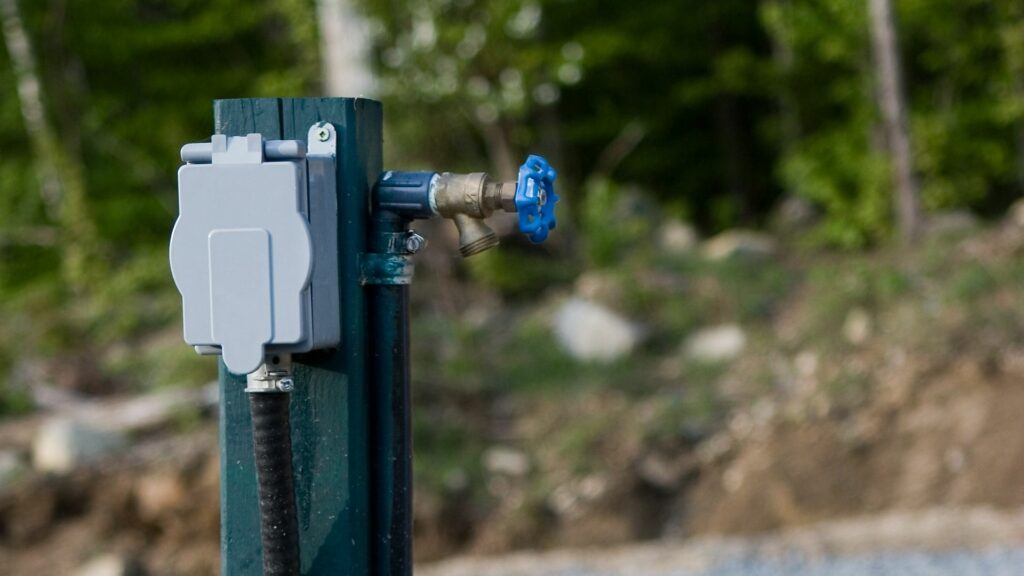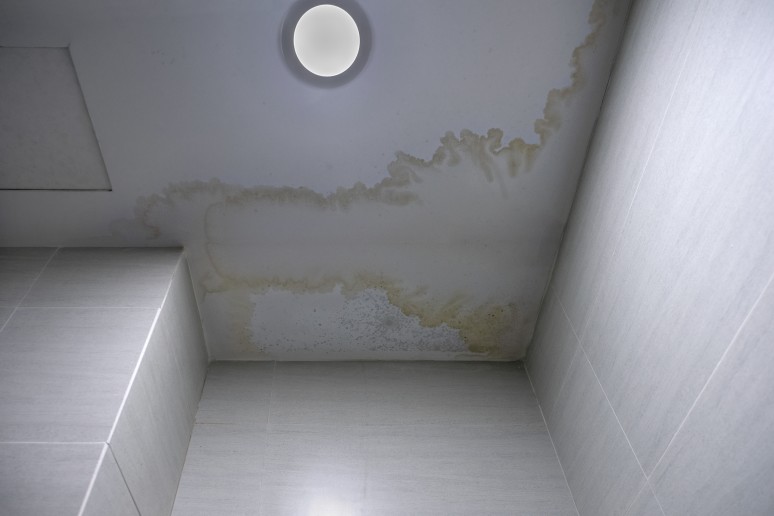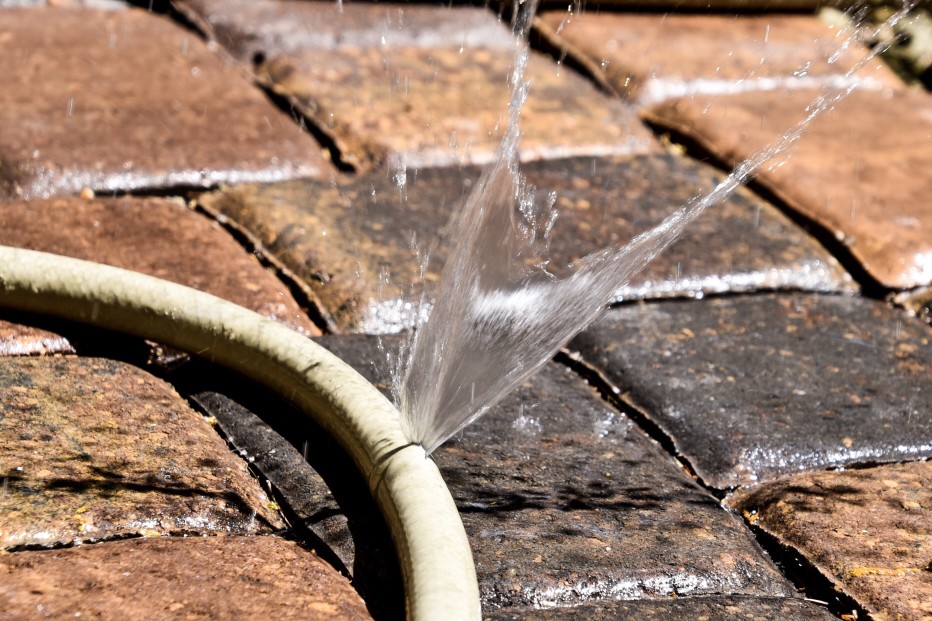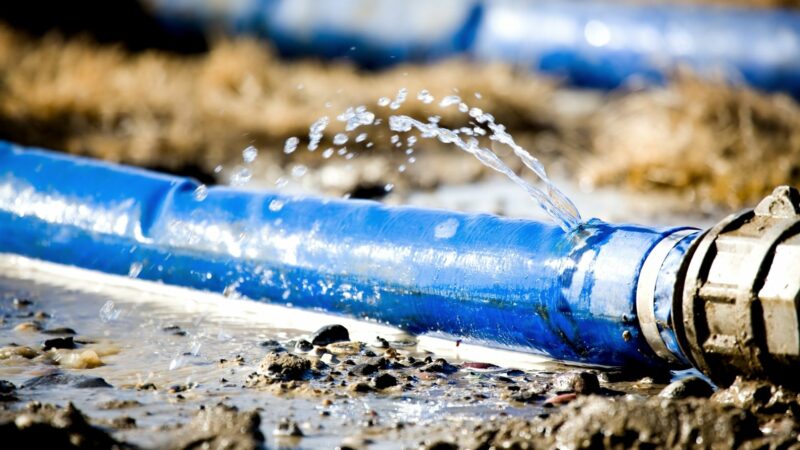Table of Contents Show
What would you say if we told you that you could prevent thousands of dollars in repair bills by doing a simple task? Would you do it? Many RVers turn the water off to their RV when they leave for an extended time. However, should you turn your water off every time you head out? Let’s take a look!
Should You Turn Your RV Water Off?
Any time you plan to leave your RV, turning the water supply off is a good idea. It doesn’t matter whether you use the city water connection or your water pump; it can help you avoid a serious situation.
Fittings can fail, water lines can break, and someone could leave a water faucet on. If this happens while away, you could come back to find a mess. Water in an RV or the underbelly can quickly cause a substantial amount of damage that could cost a pretty penny to fix.
Keep In Mind: If you’ve found water damage in your RV already, check out repair costs and further prevention tips.

Leaving for a Few Hours vs. Overnight
If you’re worried about water damage, turn off the water to your RV. Failures in your water system can occur in just a few hours or overnight, so it depends on how much you want to protect your RV.
Many RVers will turn off the water every time they leave. This helps avoid a chance that a faucet or toilet fails and you end up with water spilling over. You can never be too safe when it comes to preventing water damage.
How RV Water Is Different Than a House
RV plumbing systems typically use lower quality materials, and an entire RV is generally put together in a matter of a day or two. They typically don’t last long. It’s not uncommon for the lower-quality parts to fail or to develop leaks.
Some RVers have experienced leaks causing a large amount of damage to their RV because they went unnoticed for so long. Due to the manufacturing process of RVs, many of these leaks occur in hard-to-reach places, which makes spotting and troubleshooting them difficult.
Residential houses often have easier access to pipes, making repairs and maintenance easier. Additionally, they often use copper or more industrial or heavy-duty pipes than what you’ll find in an RV.
Neither of these options is without fault. Leaks and failures can occur in almost every plumbing situation. It’s important to keep an eye and ear out for any drips in your plumbing system. You want to catch these issues as soon as possible.

The Disadvantages of Leaving Your Water On
There are a handful of disadvantages of leaving your water on. Let’s take a look at them so you can make an informed decision when it comes to turning off the water in your RV.

Leaks and Burst Pipes
Leaks and bursting pipes aren’t uncommon in RVs. When you leave the water on, if one of these issues occurs, it could go unnoticed for quite some time. This would result in massive amounts of damage. These incidents can lead to costly repairs and put your RV out of commission for quite some time.
Leaks and bursting pipes can occur at any time. However, they often happen when your water lines freeze and the water expands, breaking the pipe. The expansion of the water can crack or damage components and cause enough damage to ruin your day.
Pro Tip: Choose the best air compressor for winterizing your RV water lines to avoid broken pipes due to freezing water.
Could Fill Your Underbelly
If you have an enclosed underbelly, you could have a leak and not know it. The covering that encloses the undercarriage will prevent the water from dripping onto the ground and revealing an issue. Eventually, the water will weigh down the insulation in your underbelly and cause the material to sag.
By this point, it’s often too late to salvage the insulation, and the easiest way to address the issue is to remove the underbelly enclosure to address the leak. You can then go about replacing the insulation before closing up the underbelly of your RV.
Ruins Wood
Leaks are sneaky and can go on for quite some time before you find them. If a leak goes unnoticed for long enough, it can ruin any carpeting or flooring in your RV. It may damage wood floors and walls too. Having to replace the floor in an RV is a rather intensive project and may require you to hire a professional.
Animals Have Turned on Faucets
Some RVers have discovered that their pets have accidentally brushed against a faucet handle and turned it on. If you’re home, you may catch it in time before it creates an issue. However, if you leave for a few hours or the rest of the day, you could return to quite a mess. RV manufacturers include many great features in RVs, but an indoor pool is not one of them.
Hoses Can Explode in Extreme Heat
It’s not just the cold weather that you have to worry about, but extreme heat can also cause damage to your RV hoses. This is most common in older ones unprotected from the elements. This causes them to weaken over time and become more likely to burst when overly stressed. Bust hoses from extreme heat can happen without any warning and leave you wishing you had turned your water off.

Better Be Safe Than Sorry
When it comes to keeping your RV safe, it’s always better safe than sorry. Turning off the water any time you leave may seem like a hassle, but it can save you a tremendous amount of money and prevent lengthy repairs. Don’t let a small inconvenience prevent you from taking the necessary steps to protect your RV from water damage. Do you turn the water off to your RV while you’re away from it?







Hi Jason & Rae,
As I was reading your blog, it got me thinking each time we go out to do errands. I have a golden rule that if you are out more than four hours, the water gets turned off and if less I go and check the water bay for possible leaks.. so far no issues.
Question: the battery that you are doing the giveaway on if I bought that same battery. Can I connect it to the same system the RV came with or will I have to do an update on the charging system?